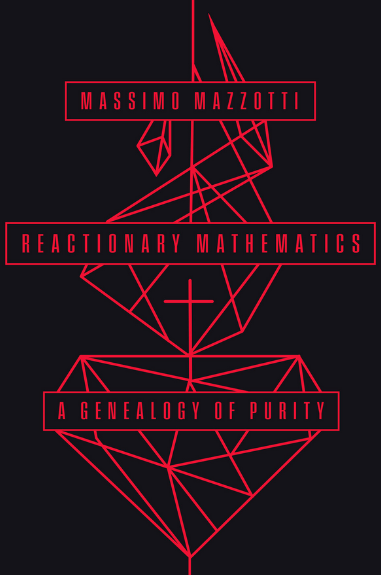Reactionary Mathematics
Breve Descripción
El siglo XIX se abrió con un cambio importante en las matemáticas europeas, y en el Reino de Nápoles, esto ocurrió antes que en otros lugares. Los napolitanos, argumenta Mazzotti, estaban reaccionando al uso generalizado del análisis matemático en los argumentos sociales y políticos. Este libro retoma un episodio olvidado de resistencia matemática que revela el surgimiento de las matemáticas modernas y su piedra angular, la pureza matemática, como fenómeno político.
Breve descrição
O século XIX começou com uma grande mudança na matemática européia, e no Reino de Nápoles isso ocorreu mais cedo do que em qualquer outro lugar. Os napolitanos, argumenta Mazzotti, estavam reagindo ao uso generalizado da análise matemática em argumentos sociais e políticos. Este livro retoma um episódio esquecido de resistência matemática que revela a ascensão da matemática moderna e sua pedra angular, a pureza matemática, como um fenômeno político.
Full description
A forgotten episode of mathematical resistance reveals the rise of modern mathematics and its cornerstone, mathematical purity, as political phenomena.
The nineteenth century opened with a major shift in European mathematics, and in the Kingdom of Naples, this occurred earlier than elsewhere. Between 1790 and 1830 its leading scientific institutions rejected as untrustworthy the “very modern mathematics” of French analysis and in its place consolidated, legitimated, and put to work a different mathematical culture. The Neapolitan mathematical resistance was a complete reorientation of mathematical practice. Over the unrestricted manipulation and application of algebraic algorithms, Neapolitan mathematicians called for a return to Greek-style geometry and the preeminence of pure mathematics.
For all their apparent backwardness, Massimo Mazzotti explains, they were arguing for what would become crucial features of modern mathematics: its voluntary restriction through a new kind of rigor and discipline, and the complete disconnection of mathematical truth from the empirical world—in other words, its purity. The Neapolitans, Mazzotti argues, were reacting to the widespread use of mathematical analysis in social and political arguments: theirs was a reactionary mathematics that aimed to technically refute the revolutionary mathematics of the Jacobins. Reactionaries targeted the modern administrative monarchy and its technocratic ambitions, and their mathematical critique questioned the legitimacy of analysis as deployed by expert groups, such as engineers and statisticians. What Mazzotti’s penetrating history shows us in vivid detail is that producing mathematical knowledge was equally about producing certain forms of social, political, and economic order.
Formal Science
otras áreas de / interés...
other areas of / interest...
outras áreas de interesse...
¿Buscas un título en un área específica?
Looking for books in a specific area?
¿Buscas un título en un área específica?














